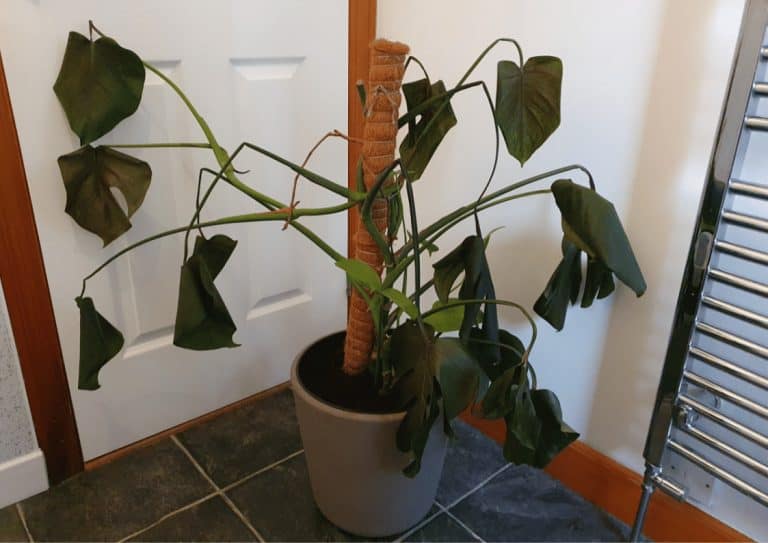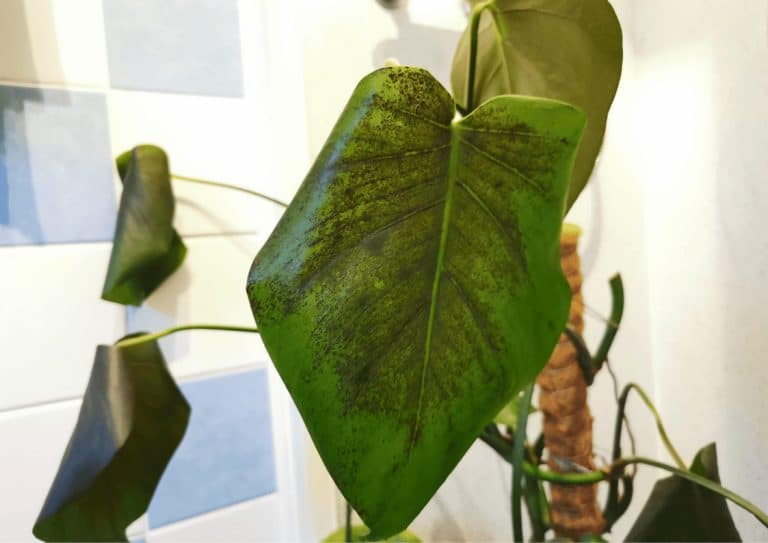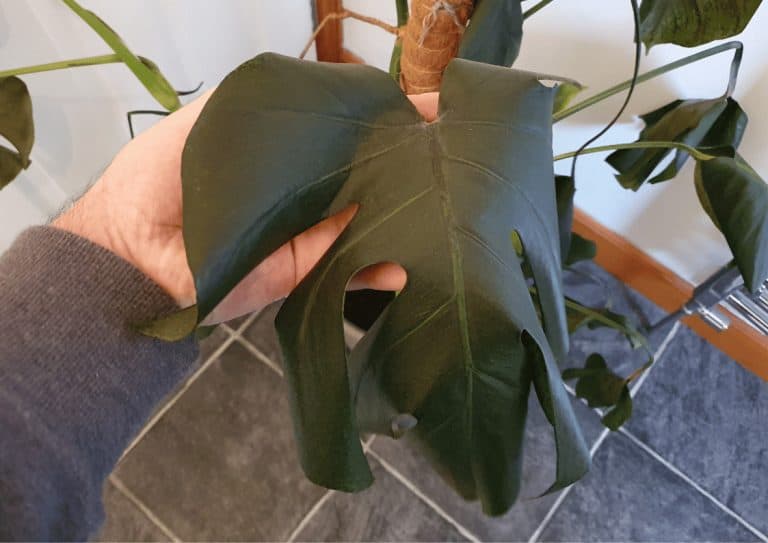Winterizing Your Monstera: Protecting Your Plant from Cold Damage
- Chris Dosser
- January 10, 2023
If you buy something using the retail links in our articles, sometimes we earn a small affiliate commission. This does not impact the products we recommend.
Some plants have evolved adaptations to protect their cells from cold temperatures. Mechanisms include the production of proteins that act as anti-freeze, the accumulation of sugars that lower the freezing point of the cell’s contents, or the ability to form ice crystals in a way that does not damage the cell.
Unfortunately Monstera plants being native to the warm climates of Central and South America have not evolved any such adaptations to freezing temperatures and so are more easily damaged by exposure to cold weather.
To protect your Monstera from cold damage there are a few practical steps you can take including:
- Moving the plant away from cold spots such as an unheated conservatory, porch or even in close proximity to exterior windows
- Reduce the frequency of watering during winter months
- Prune dead, dying or damaged tissue to allow the plant to direct

Understanding Monstera plants’ cold tolerance
In their natural habitat of Central and South America, Monstera plants are accustomed to warm, humid conditions and do not typically experience extreme cold. However, as popular houseplants, they are often grown in a range of indoor and outdoor environments with varying temperature and humidity levels.
Understanding a Monstera plant’s cold tolerance is therefore extremely useful to protect a plant from damage during a cold season.
Factors that affect a Monstera plant’s cold tolerance include its age, size, pot size, and the type of soil it is planted in; however a general rule of thumb is to keep Monstera plants in temperatures above 35 Fahrenheit (2 Celsius). Any colder than this could risk the water inside plant cells freezing which may cause the cell membrane to rupture and lead to cell death.
Younger, smaller plants tend to be more sensitive to cold than older, larger plants. Similarly, plants grown in small pots may be more prone to cold damage than those grown in larger pots, as the roots have less room to spread out and absorb warmth from the soil.
From our experience we’ve left healthy mature Monstera deliciosa plants in air temperatures of 32 Fahrenheit (0 Celsius) for a couple nights running and observed no ill effect. A week later as the below pictures show the same plant was left to experience temperatures of 23 Fahrenheit (-5 Celsius) and it got smoked!

Signs of cold damage in Monstera plants
One of the most common signs of cold damage in Monstera plants is discoloration or yellowing of the leaves. This can occur as a result of the plant’s cells being damaged by the cold, causing the chlorophyll (which gives leaves their green color) to break down.
Other signs of cold damage include wilting or drooping leaves, brown or black spots on the leaves, and stunted growth or dying off of new growth.
If you notice any of these indicators on your Monstera plant, it is important to take action to protect it from further cold damage. This may involve moving the plant to a warmer location, insulating windows, or creating a mini-greenhouse to create a micro-climate.
By paying attention to the signs of cold damage and taking steps to protect your Monstera plant, you can help ensure its long-term health and success.


Tips for winterizing Monstera plants
Winterizing Monstera plants is an important step in ensuring the long-term health and success of these popular tropical houseplants. There are a number of tips everyone can take to protect their Monstera plant(s) from suffering cold damage during the winter months.
One of the most important things you can do to protect your Monstera plant from cold damage is to move it away from drafts and cold windows. This will help to prevent the plant from being exposed to fluctuating temperatures that can cause damage.This will help to reduce the amount of cold air that enters your home, keeping your plant at a more consistent and comfortable temperature.
One important tip for winterizing Monstera plants is to water them less frequently. During the winter months, these plants typically do not need as much water as they do during the warmer months. Overwatering can lead to root rot, which can be especially damaging in cold temperatures. Instead, allow the soil to dry out slightly between watering and use your finger to check the moisture level before watering.
Pruning dead, dying or damaged leaves can also help to winterize your Monstera plant. Removing these leaves will allow the plant to direct its energy towards healthy growth and help prevent the spread of any potential diseases.
If you have an outdoor Monstera plant, you can create a mini greenhouse to provide additional protection from the cold. This can be as simple as covering the plant with a clear plastic sheet or placing it in a greenhouse.
Finally, increasing the humidity around your Monstera plant can help to winterize it, especially if you have it indoors. Using a humidifier or placing the plant on a tray filled with pebbles and waters can help to increase the humidity and prevent the leaves from drying out.
FAQs
Some steps you can take to protect your Monstera plant from cold damage include keeping it away from cold air draughts and external windows, using a thermometer to monitor indoor temperatures, placing the pot close to a source of heat such as a radiator, and creating a mini greenhouse for Monstera that will remain outdoor plants.
Monstera kept as houseplants tend to go into a dormant state during the winter season and do not require as much nourishment in the form of fertilizer. It is generally recommended to fertilize your Monstera plant less frequently or not at all during the winter months.
Similar Posts
Why Are The Leaves Falling Off My Monstera Plant? (Incl. Fixes)
Are the leaves on your Monstera plant looking a bit droopy? Chances are it's nothing serious but to get your plant back to full health you need to act now!
Propagating Monstera Adansonii: Tips And Tricks For Success
There are two methods of propagating Monstera Adansonii - in soil and in water - and we're going to help run you through the process of each.



